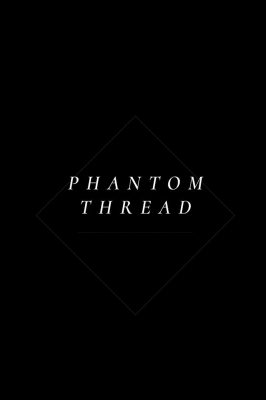
Phantom Thread (2017), Distributed by Focus Features
Phantom Thread looked, from its vague trailers billing it as a restrained period piece to its almost non-existent marketing, like a difficult, inscrutable period piece. It is that, to an extent, but buried underneath all the ad copy there lies something much stranger. At its core, Paul Thomas Anderson’s latest is like the painting Wanderer Above the Fog if a bunch of women were standing off to the side of the Romantic hero and pointing, and laughing, and maybe occasionally throwing apples at his dumb head. Phantom Thread reveals itself slowly to be a comedy of manners, a patient character study of two deeply odd, and at times off-putting characters, and an exposure of the obsessive, isolated, professional male archetype as patently absurd, childish, and ridiculous.

Caspar David Friedrich
But Phantom Thread, which relays the story of fictional post-WWII dressmaker Reynolds Woodcock (Daniel Day-Lewis, in perhaps his final performance) as he falls in love with the beguiling Alma Elson (Vicky Krieps), is certainly built the way movies about obsessive, isolated, professional men usually are. Content to languish in long shots, underplayed dramatic tension, and slow-burn pacing, Anderson has crafted an intensely specific, formally gratifying parody of the kind of film even he is guilty of making. Contrasting this with something like There Will Be Blood, Anderson’s deadly serious, previous collaboration with Day-Lewis, shows Anderson’s ability to playfully and deliberately undermine his own dramatic sensibilities to revelatory effect.
None of this is to say that Phantom Thread should be taken lightly, or that it’s psychological or dramatic depths are undermined by the movie’s humorous ridiculing of Woodcock’s overbearing personality. Day-Lewis is of course a tremendous actor, and he navigates Woodcock’s fussy childishness and desire with endearing pathos and humanity. Playing against him is the brilliant Krieps, who, as Alma, is both an engaging sparring partner and similarly three-dimensional conception, revealed to have her own strange obsessions and a fundamental, riveting inability to accept Woodcock’s would-be dominance as the way things should be. That their relationship can evoke so many battles at once—class difference, gender inequality, and professional resentment—yet also finds a way to read as deeply intimate and romantic is a testament to the two performers, and Anderson’s deft mastery of tone. As both satire and psychological exploration, Phantom Thread succeeds, never letting its central duo, or even its supporting cast, be reduced to archetypes.
The film looks gorgeous, too, communicating the elegance and color of Woodcock’s creations, and contrasts it with his own washed-out, sterile view of the world. A scene late in the film at an extravagant New Year’s party balances color, extravagant detail, and the shadowy, unpleased Woodcock in a way that is both dazzling to look at and a tragic reflection of complete joylessness. Anderson’s film contains numerous instances of image and color embodying split-consciousness, warring impulses, and the ultimate inability to see or accept the world as it is, and to expect something better of it, and to want to create something better within it. Alma and Woodcock’s relationship can be read as that better creation, or a worse creation, or as something so tangled and rewarding and stymying all at once that it can’t be classified as either good or bad. It feels human, and it feels real, and it is the details—as unsettling as those details become—that renders it as such.
By exploring the fallacy of control, especially as it influences and overrides the empathy of men, Phantom Thread wields humor as a means of understanding and correcting that particular pathology. By aping the conventions of a more “serious” depiction of control and obsession, the film renders the fallacy and its common perpetuation—in film, and art, and behavior—feel that much hollower. Funny, strange, and enigmatic, Phantom Thread sheds the sterility of an ordinary period piece and the self-seriousness of obsessive dramatics to deliver something far more memorable, and far more humane.
Phantom Thread is now showing at the SIFF Egyptian
CAMERON FAIRCHILD | Poisonous Mushroom | KXSU Arts Reporter

